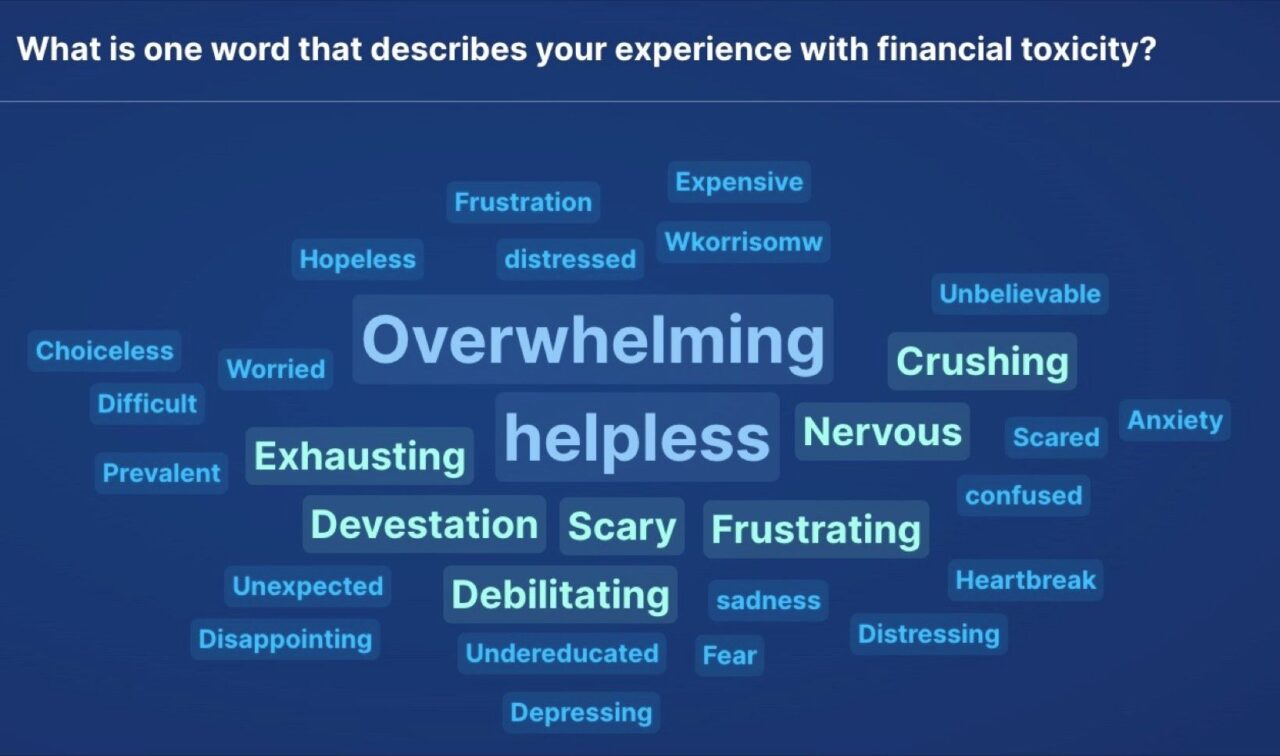Patricia Falconer, Cancer Services Strategy and Healthcare Leader at Health Options, shared on LinkedIn:
“More than half of patients who ultimately had severe cancer-related financial hardship were missed by routine distress screening resulting in 28% higher likelihood of missing cancer visits and 32% higher likelihood of incurring bad debt. Psychosocial distress screening, widely utilized across cancer clinical settings, is not sensitive or specific enough to accurately identify patients’ financial distress.
We can do better.
The Comprehensive Score for Financial Toxicity (COST) is an 11-item, evidenced-based patient-reported outcome measure of financial toxicity for adult patients with cancer. A brief financial toxicity screening may facilitate implementation in busy cancer clinics to help proactively identify and promptly intervene in vulnerable patients. A new study performed in a breast cancer outpatient setting of a large urban academic cancer center in New York determined that 4 items from the COST questionaire may singularily identify financial toxicity:
*I worry about the financial problems I will have in the future as a result of my illness of treatment.
*I am satisfied with my current financial situation.
*I feel financially stressed.
*My cancer treatment has reduced my satisfaction with my present financial situation. ”
View more details.
Source: Patricia Falconer/LinkedIn


